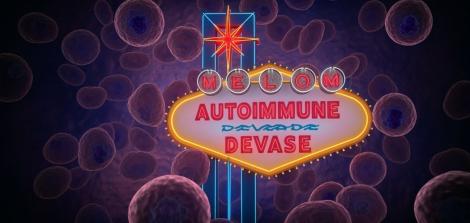"We're reaping the fruits of the ground-breaking decisions made a few years ago" : An interview with Professor Dana Atzil-Slonim

Prof. Dana Atzil-Slonim, a clinical psychologist, can usually be found in the psychotherapy research lab she heads up at Bar Ilan University. Currently, you can find her at the Alan Turing Institute for the Study of Artificial Intelligence in London, a joint initiative by five academic institutions, including Cambridge and Oxford Universities.
What's the link between psychotherapy and artificial intelligence, and why are researchers from the Turing Institute so excited by the collaboration with Bar Ilan University? In between the NLP labs, food markets and jazz performances which fill Prof. Atzil-Slonim's days during her sabbatical year, we managed to grab her for a conversation.
From the clinic to research and back: "I was shocked at the gap between the practice and the research"
Prof. Dana Atzil-Slonim is a pioneering researcher in the field of psychotherapy research. Her studies help make clinical psychology research a field based not only on reports by practitioners and patients, but also upon measurable data. It's therefore unsurprising to discover that many of her research ideas have their roots in meetings with her patients, within the framework of her work as a clinical psychologist.
Dana, how did you get from practical therapy to research?
I studied clinical psychology and worked as a therapist for years, while simultaneously working on my doctorate at Bar Ilan University. Because I experienced both worlds at the same time, I remember being in shock at the chasm between the research and practice. Clinicians would focus on the therapy itself, with a sense that the meeting with each patient was so unique and one-time that there was no way to research it. On the other hand, the researchers did not understand how the therapists could carry out the treatment without trying to research and comprehend the treatment's efficacy. The tension between the two approaches attracted me, and I sought ways to mediate between them. I gradually began to find that the most interesting questions emerged from meetings with the patients, such as, for example, how to help people who have been stuck for a long while in an emotional state which prevented them from reaching their potential, or how to adapt therapeutic intervention to specific needs of the patient at a certain moment, and so on. I discovered that there were research tools which could be used to try and answer these questions, and I joined the psychology department at Bar Ilan University in order to do so, and to access the lessons learned from the therapists' research.
%20(1).png) Professor Dana Atzil-Slonim
Professor Dana Atzil-Slonim
What makes research in this field unique at Bar Ilan University?
There is a community clinic at the Bar Ilan psychology department which provides subsidized psychological treatment for 300 patients annually. The therapy is provided by 100 students and residents as part of their training for advanced clinical degrees. The research lab which I head up is equipped with an advanced system that allows us to document the therapy meetings at the community clinic, moment by moment, gathering a multi-layered bank of data which includes audio, video, text and various physiological and hormonal figures. The quantity and quality of the data we gather places us on the same level as the large, most advanced psychotherapy research labs in the world.
And what is the link between this ability and the Turing Institute which works with artificial intelligence?
In order to analyse the incredible quantity of multi-layered information gathered, we use machine learning models and tools based on artificial intelligence, in order to advance personalized psychological healing in the field of mental health. The use of these tools allows us to carry out research which advances understanding of which therapeutic intervention is suited to which patient at which point. This understanding will significantly advance the efficacy of emotional treatment and dramatically improve the field of mental health. Our unique data bank, and its integration of artificial intelligence tools, has created a buzz of significant interest in the world of research, as well as attracting the attention of AI researchers at the Turing Institute.
"Artificial intelligence researchers are very excited about our collaboration"
Could you tell us a bit more about your work at the Turing Institute?
It's a very exciting collaboration. I work there with Prof. Maria Liakata, a leading researcher in the field of NLP who recently received a grant to research mental health using artificial intelligence. The Turing Institute in general is an extremely cool place. It's located in the British National Library complex and the whole place is full of books and young, enthusiastic researchers, so I'm really enjoying this on a personal level as well. The truth is that I was surprised by the level of enthusiasm from the AI researchers insofar as working with us on this subject, and to jointly plan studies on the unique data we've gathered at Bar Ilan University.
In other words, the unique laboratory at Bar Ilan has become an international point of interest?
That’s correct. Even outside of Britain – we are also collaborating, for example, with Prof. Irina Gurvich from Darmstadt University in Germany who is one of the world experts on multi-modal analysis, which allows us to analyse text, audio and video together using AI as well as to identify patterns of interaction between the patient and the therapist which foretell positive change. One could say that we are now reaping the fruits of groundbreaking decisions made several years ago, and I'd really like to express my enormous gratitude for the support we received from within Bar Ilan University to establish the lab, with a forward-looking vision regarding the importance of gathering and analysing material.
How, in fact, did the idea come about to establish this unique laboratory at the university?
The community service clinic has been around for several years, however the significant step up was made possible following a large grant which we received from the National Science Fund which allowed us to install a computerized system which, using audio and video recordings, documents the treatments, monitors their progress using AI and provides feedback for the therapists. These advances have formed part of the joint vision of the President of the university, Prof. Aryeh Tzaban and Research Professor Shula Michaeli, who understood that the future lies in big data and in multidisciplinary collaboration among researchers at the university. Their support and their joint vision made it possible to establish our research clinic, which has become one of the most advanced in the world insofar as the size and quality of data gathered, as well as the innovative technologies for monitoring, analysis and feedback about treatment.
Multi-layered data: The key to ground-breaking research
Could you explain a bit more which unique studies are being carried out with the aid of this data base?
Absolutely. For example, many of our studies employ tools from the field of Natural Language Processing (NLP), in order to automatically analyse the dialogue between the therapist and the patient. Thus, for example, we automatically encode the therapist's intervention and the patient's reactions, speaking turn by speaking turn in our large data base and use tools from computerized learning in order to identify sequences which predict a positive change. In another study, in which we collaborated with Professor Yoav Goldberg from the Computer Sciences department at Bar Ilan university, we automatically identified the topics of conversation discussed in treatment and showed how a change in the therapy conversation content predicts change in the treatment results.
How, for example, can the patient's reactions be measured, apart from what they say?
The multi-layered data allows us to do quite a bit. For example, because the meetings are documents on both video and audio, we use an algorithm which automatically identifies the range of the patient and the therapist's facial expressions and another algorithm which examines their emotional awareness through their voice. In this way, we've seen that synchronization of emotional regulation processes as they are expressed in facial expressions and voices predict the success of the treatment.
It sounds fascinating, but what sort of practical findings can be taken from this analysis?
One finding we discovered was significant on both the diagnostic and the therapeutic fronts. While it had been common to believe that patients with negative moods would suffer more from depression, the data analysed indicated that what characterizes patients suffering from depression when symptoms are high is not necessarily the sort of emotion, but rather a lack of flexibility in their range of emotions. The repertoire of emotional arousal is of significant influence and a greater range is linked to less depressive symptoms. By the way, this data received cross-model reinforcement: in the audio, video and also physiologically. It's incredible; we can see that flexibility is critical to mental health in all channels of expression.
How exactly does the study work: Do you have pre-set questions or do you allow the data and the AI to tell the story?
It works on both levels. On one hand, we come with a theoretical base and clinical knowledge, and on the other, we allow the data to tell us something new. For example, on one hand we are beginning with theoretical understandings of the importance of the synchronization and co-regulation processes between the patient and the therapist, while on the other we use analysis which employ data mining and seek patterns which emerge from within the data and the clusters of patients with common characteristics which may not have been predictable. One could say that the model we are developing at Bar Ilan university is an interactive one, in which data moves back and forth among the clinicians and the researchers. The therapists receive constant feedback based on the study's findings, in a manner which helps them to track the shifts in the patient's emotional state and to direct interventions accordingly. At the same time, the patients and instructors are contributing to the advancement of research by raising research questions with clinical significance which can then be studied in the lab. The joint feedback develops and advances alongside the progress in research conclusions. Thus, for example, we are currently developing a feedback system based on the integration of a broad range of measurements and on the study's findings carried out related to them, addressing a specific patient who is suffering from a specific diagnosis and in relation to the proposed treatment process for this patient. All of this is intended to advance the appropriate individual treatment and to lead to better treatment results.
Could you give us an example of a study in which the data can improve the clinicians' work?
For example, on the subject of identifying "breaks within the therapy agreement", which are an important part of the dynamics between patient and therapist. We asked the therapist and the patient to respond, at the end of therapy meetings, to the question whether they had sensed tension between them during the meeting. We later used the NLP tools to automatically predict from the transcription of the meeting whether there was or was not tension in the meeting. We discovered that there were cases in which the data tells us that there was a problem but the patient did not identify it. In guidance meetings within the framework of professional training, the therapist can receive feedback on this potential problem which they may have missed, and try to comprehend, along with the instructor, what led to the tension and how it's recommended to handle similar situations in upcoming meetings.
Personalized medicine in the field of mental health: How will the future look?
As a leading researcher at the Dangoor Center for Personalized Medicine, how is the concept of personalized treatment expressed in the field of mental health?
The field is trying to move in the direction of personalization. Instead of talking about which treatment could, on average, help everyone, we are trying to understand which processes and interventions work for who and when. Instead of speaking about psychopathology in such a general manner, we're learning that there are multiple nuances and so many combinations of symptoms and of what characterizes a patient suffering from a specific problem at a given moment. Mental health medicine personalized through the use of AI tools will allow us to expand the causes of emotional problems even before symptoms appear. Expanding the accessibility of treatment, better matching of patients and types of treatments and therapists who suit them, providing feedback during therapy which will increase the quality of the treatment and continual monitoring of the patient's mental state even after treatment is completed, in order to prevent a reoccurrence.
Do you believe that in coming years we will begin to see a measurable improvement in the success of mental health treatment?
Look, we know from existing research thus far that evidence-based treatments tend to help more than no treatment. Whether it's a matter of treatment through medication, psychodynamic or CBT treatment, the therapies have been seen to be effective in comparison to non-treatment. Figures show that following treatment, between 40-60% of patients show a marked improvement, as opposed to 20-40% of placebo treatment. This is significant, but not good enough, given that 50% of people do not benefit sufficiently from the treatment they receive. I believe that we are on the verge of a dramatic shift in the approach to mental health services, and are moving away from the approach which has led the field for so many years, in which a specific treatment is meant to be effective for all patients, on average. Instead of this, the emphasis will be increasingly placed on a personalized approach. The ability to employ AI systems and to adapt the therapeutic intervention to the needs of the patient is becoming real, in the wake of recent research findings. We will, we hope, be able to improve the effectiveness of mental health treatments.
In conclusion, if we're already discussing AI technology, do you think that ChatGPT and similar technology will replace psychologists?
These technologies are advancing at a dizzying rate and we will be using them more and more in the field of mental health, however, I believe that the human connection plays an important role and that these systems can aid therapists and expand the accessibility of treatment to broader populations, but will not replace the professionals. It's important to note that the stronger the AI systems become, the greater the risk that they may lead to results which are not wholly in line with the needs and values of human beings. This could lead to unwanted results, particularly when dealing with vulnerable populations as in the field of mental health. One of the directions which we are therefore examining closely at the moment in the lab is to systematically learn these new AI systems, including ChatGPT, in order to comprehend their abilities and limitations and based on these, to develop new systems which integrate ethical considerations and data security as well as adaptation to sensitivities and specific needs of those who require mental health services.
Last Updated Date : 12/11/2024








